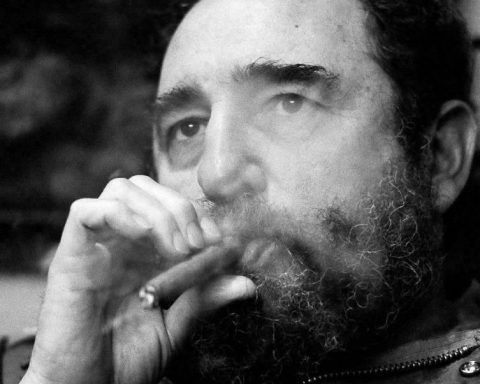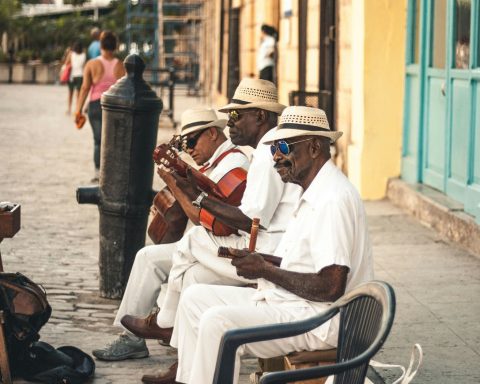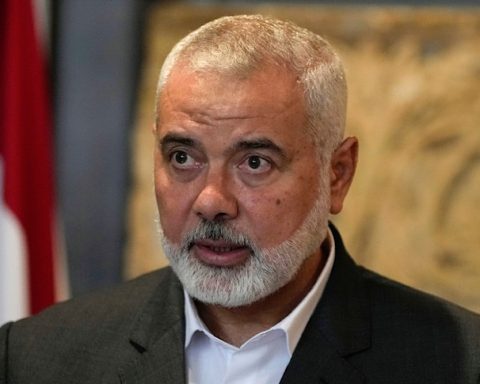|
Getting your Trinity Audio player ready...
|
When Fidel Castro and his revolutionary forces overthrew the oppressive Cuban government in 1959, it was much more than a political revolution – it was a religious one as well. The Cuban socialist revolution was heavily influenced by religious values, and its roots can be traced back to the country’s long history of religious practices.
Castro’s government adopted a policy of religious tolerance, allowing religious expression from all denominations and creeds. This allowed for a diverse range of religious practices, including Santería, Palo Monte, and Abakuá, to be openly practiced. This was seen as a major victory for many religious communities in Cuba who had been persecuted and oppressed under previous regimes.
Castro’s government also created several social programs that improved the lives of Cubans, such as free education and healthcare. These programs would not have been possible without the religious values that Castro and his revolutionaries held. By connecting the Cuban people to their religious roots, they were able to build a society that was more just and equitable.
M.Hemmatpour, Fajr – The Cuban people have a deeply spiritual and religious history, and many of the revolutionary figures in Cuban history were inspired by their faith. The Cuban revolution was a direct result of the Cuban people’s desire for freedom and a better life, and their faith was instrumental in providing them with the courage and determination necessary to achieve their goals.
It is significant that the Cuban revolution was led by a group of men with a strong moral code, and one of their founding philosophies was that of “social justice”. This idea includes the belief that all people should have equal access to resources, education, and opportunity, regardless of their social class or background. The Cuban revolution was also guided by the principles of international solidarity and anti-imperialism, which has helped to shape the nation’s foreign policy for decades. As a result of its revolutionary ideals, Cuba has become an example for the rest of the world, leading the way in social reform and providing a model for other countries to follow.
The Cuban people have a long history of faith-based social movements, and many of the revolutionary figures in Cuban history were directly inspired by these movements. José Martí, the leader of the Cuban War of Independence, was an inspirational leader who was deeply committed to religious values. He believed in justice, equality, and freedom for all, and his faith was a major driving force behind the Cuban revolution. His faith-based values were also evident in his commitment to education and social reform. He believed that education was the key to unlocking Cuba’s potential, and he worked to improve the educational system for all Cubans. He also worked to reduce poverty and inequality, and championed the rights of the poor and marginalized. He was a strong advocate for gender equality, and was a vocal opponent of discrimination. In short, his faith-based values were the foundation of his revolutionary spirit and helped to shape the Cuban revolution.
Another key figure in the Cuban socialist revolution was Fidel Castro, who was heavily influenced by his Catholic faith. Castro was a devout Catholic and was known to pray daily during his time in power. He believed in the power of prayer and its potential to bring about social change, and he often used his faith as a way to motivate and inspire his followers.
Castro famously declared that, “Religion is an important part of our revolution. We are a revolutionary people, and our revolution is based on humanist and moral principles that are deeply rooted in Christianity.” He was a strong advocate for religious freedom and often encouraged Cubans to practice their faith openly. He also played a major role in the development of the Cuban Constitution, which guarantees the right to religious freedom for all citizens. Through his support of religious freedom, Castro was able to bridge the gap between the traditionally secular, socialist Cuban government and its citizens’ faith.
The Cuban socialist revolution was also heavily influenced by liberation theology, which is a branch of Christian theology that focuses on social justice and the liberation of oppressed people. This branch of theology emphasizes the importance of economic and social justice, and it was a major influence on Castro and other Cuban revolutionary leaders.
Liberation theology was seen as a way to challenge the oppressive capitalist system, as well as the oppressive religious structures that had been used to maintain it. The Cuban revolutionary leaders embraced this branch of theology as a way to fight for the rights of the oppressed and to create a fairer, more equitable society. This branch of theology has remained an important part of the Cuban revolution to this day, and it has been a major source of inspiration for many of the progressive reforms made in Cuba in the years since the revolution.
The religious roots of the Cuban socialist revolution are an important part of the country’s history, and they are a testament to the power of faith in bringing about social and political change. The Cuban people have a long history of faith-based social movements, and their faith was instrumental in providing them with the courage and determination necessary to achieve their goals.
The Cuban revolution was heavily influenced by Christian and socialist ideologies, and its leaders sought to combine the two to create a better society for all. Fidel Castro, leader of the revolution, stated that his goal was to create “a society of freedom, justice, and human dignity, where all human rights and fundamental liberties are respected.” This vision was heavily rooted in the Cuban people’s faith and their commitment to creating a more just and equitable society. Despite the challenges they faced, the Cuban people’s faith in the power of their struggle and their commitment to their revolutionary ideals helped them achieve their goals.
The lie of the Cuban revolutionaries’ opposition to God
The Cuban Revolution of the 1950s sought to modernize Cuba and rid it of its colonial past, but its opponents often accused the revolutionaries of being anti-God. This accusation, however, has been disproven and rejected by the Cuban government. In fact, the Cuban government has consistently shown a respect for religious institutions and churches, allowing them to operate freely and without interference.
In 1975, the Cuban government adopted a law that granted complete freedom of worship and ensured that the state would not interfere in religious activities. This law was reaffirmed in 1992 when the Cuban Constitution was adopted. Since then, Cuba has become a multi-confessional country, where people of all faiths are free to practice their religion without fear of reprisal.
The Cuban government has also taken steps to support churches and religious organizations. In 2014, the Cuban government declared that churches could receive donations and build new facilities without having to pay taxes. This move was seen as a sign of the Cuban government’s commitment to religious freedom.
The Cuban Revolution may have sought to modernize Cuba, but it never sought to undermine the faith of its citizens. Today, Cuba is a multi-confessional country, where people of all faiths are free to practice their religion without fear of reprisal. This demonstrates that the Cuban government is committed to protecting religious freedoms and ensuring that all citizens can practice their faith without interference from the state.
Cubans are a more religious nation than many Western countries
Cuba, a Caribbean nation located just south of the United States, is often thought of as a nation with a largely secular population. However, a closer look at the Cuban people reveals that they are actually more religious than many other countries in the West.
The Cuban Constitution guarantees freedom of religion and the Cuban people are allowed to practice any faith of their choosing. While the majority of Cubans identify as Roman Catholic, the nation is also home to a variety of other Christian denominations, including Protestantism, Pentecostalism, and Seventh-Day Adventism. Additionally, there is a small presence of non-Christian faiths, such as Judaism, Buddhism and Spiritism.
Research has shown that the Cuban people are more likely to attend religious services than those in the United States, Canada, and most of Europe. In fact, a survey conducted by the Pew Research Center found that more than 60 percent of Cubans said they attend religious services at least once a week, compared to only 39 percent of Americans and 24 percent of Canadians.
The Cuban government has also played an important role in promoting religious practice. The government has supported the construction of churches, provided financial assistance to religious organizations, and even allowed religious leaders to hold seats in the Cuban Parliament.
Overall, it is clear that Cubans are a more religious nation than many Western countries. This is due largely to the government’s support of religious practice and the fact that the Cuban people are more likely to attend religious services. As Cuba continues to open up to the West, it is likely that its religious practices will continue to increase.











